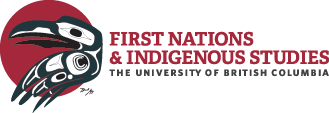George Manuel (1921-1989) was an Aboriginal political leader in Canada who held a number of influential roles throughout his career.
George Manuel was born February 17, 1921, a member of the Neskonlith Indian Band of the Shuswap Nation in British Columbia. In his early life, Manuel attended residential school and worked in the forest industry as a boom boss. Manuel became drawn towards a political vocation as a result of the growing despair he saw in his own community. His political career, which spanned three decades, began with his term as Chief of the Shuswap people, a position which he held for seven years.
In 1959, Manuel stepped into the role of President of the North American Indian Brotherhood of BC, which launched his political career on a national and international stage. His proficiency at bringing people together to stand up for their rights was demonstrated on multiple occasions.
When then Prime Minister Pierre Trudeau released the White Paper policy in 1969, Manuel spoke out strongly against the proposed assimilationist goals. Manuel found himself in a position to lead other Aboriginal people in their fight against the federal plan.
George Manuel united Indigenous peoples on local, regional, national and international levels in an attempt to see Aboriginal rights recognized. In 1970, Manuel became the president of the National Indian Brotherhood (now the Assembly of First Nations). He would hold this position for the following six years.
Manuel sought the political unity of Indigenous peoples of North, Central and South America as well as Europe and Asia. He called this collection of Indigenous societies that had been swamped under successive waves of European expansion “the Fourth World.” To give “the Fourth World” a unified voice, he launched the UN-affiliated World Council of Indigenous Peoples in 1975. Manuel also wrote a book on his idea of the Fourth World, The Fourth World: An Indian Reality, as well as publishing a number of other written works.
In 1977 at the Second General Assembly of the World Council of Indigenous Peoples in Sweden, Manuel proposed drafting an international declaration to uphold and protect the rights of Indigenous peoples worldwide. This would eventually become the United Nations Declaration on the Rights of Indigenous Peoples.
Manuel became president of the Union of BC Indian Chiefs in 1979. During the constitutional debate of 1980, on behalf of the UBCIC he led a thousand of his supporters to Ottawa via the Constitution Express to pressure the government to include Aboriginal rights provisions in the constitution.1 This resulted in the inclusion of Section 35 of the Constitution Act, 1982.
George Manuel was granted an honourary degree at UBC in 1983 for his contributions as a leader of Aboriginal peoples in British Columbia, in Canada and throughout the world. He continues to be a source of inspiration for Indigenous peoples worldwide who continue to fight for greater recognition for their rights.
Summary of political positions held:
- Chief of the (Shuswap) Neskonlith Indian Band (1960-1966)
- President of the North American Indian Brotherhood (1959-1963)
- Community Development Officer for the federal Department of Indian Affairs
- Coordinator of the Field worker program with the Alberta Brotherhood
- Chief of the National Indian Brotherhood (now Assembly of First Nations) (1970-1976)
- Founder and President of the World Council of Indigenous Peoples (1975-1981)
- President of the Union of British Columbia Indian Chiefs (1979-1981)
By Angela Lee
Recommended resources
Manuel, Doreen and George Manuel. Personal journal notes, speech excerpts and so on available online via Doreen Manuel’s website, “Running Wolf Productions:” http://www.runningwolf.ca/from-the-heart/
Manuel, George, and Michael Posluns. The Fourth World: An Indian Reality. Toronto: Collier-Macmillan Canada, 1974.
McFarlane, Peter. Brotherhood to Nationhood: George Manuel and the Making of the Modern Indian Movement. Toronto: Between the Lines, 1993.
Ryser, Rudolph C. “The Legacy of Grand Chief George Manuel.” Centre for World Indigenous Studies, 1995. https://www.cwis.org/document/the-legacy-of-grand-chief-george-manuel/
Endnotes
1 McFarlane, Peter. Brotherhood to Nationhood: George Manuel and the Making of the Modern Indian Movement. Toronto: Between the Lines, 1993, 9.

